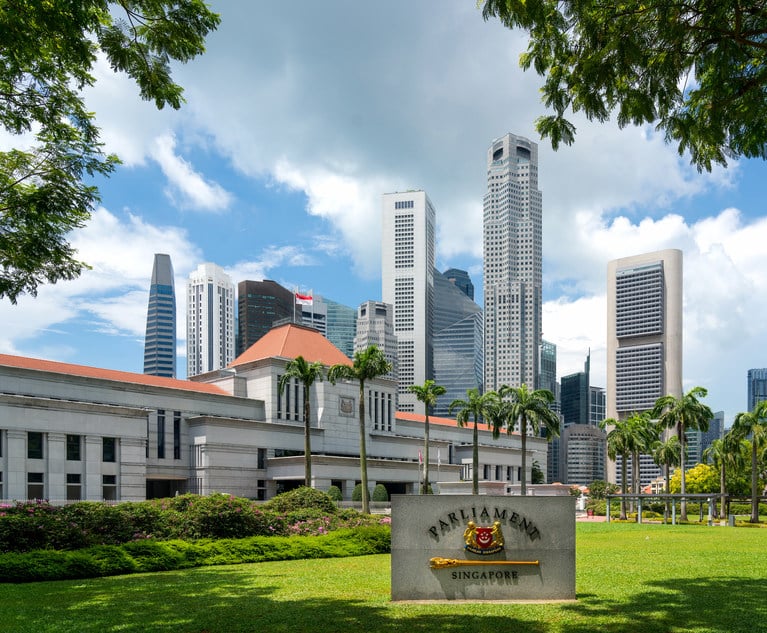“In October and November we were all saying: I hope we do not fall off the cliff again,” says Allen & Overy’s North Asia regional managing partner, Chris Roberts. “But by December, the instructions were coming in again. We are now in a situation of cautious optimism rather than cautious panic.”
Lawyering in Hong Kong might be unpredictable, hard work and prone to recession, but it could never be described as boring. The first half of 2000 saw the economy grow strongly as the region recovered from the ‘Asian flu’ of 1998 only to see the Hang Seng index fall by 11% and the bottom fall out of the dotcom market. So, what are the prospects for 2001?
Two macro-economic events could make or break Hong Kong’s year. The first is the possibility that the US will go into recession. Hong Kong is the main conduit for Chinese exports to and imports (which reached a record value of £150bn last year) from the US and elsewhere.
And the Hong Kong dollar exchange rate is pegged to the US dollar. If Hong Kong follows the Federal Reserve in cutting interest rates – as it did by cutting rates by 0.5% at the beginning of January – then the effect of a gentle US slowdown could be beneficial to the Hong Kong economy.
But despite the currency peg, Hong Kong rates do not automatically follow New York’s lead. If the currency comes under attack from speculators, then interest rates can remain significantly higher than US rates. Nevertheless, says Simon Ip, senior partner at Johnson Stokes & Master, the region should not be too adversely affected by a US slowdown, unless a hard landing translates into a global economic slowdown.
The other, more eagerly awaited event is the admission of China to the World Trade Organisation (WTO), which is widely predicted to happen this year. Many hope this will alleviate the effects of a US slowdown, especially as the Chinese economy continues to grow strongly at about 8% per year. Economic liberalisation should increase the flow of trade and capital between Hong Kong. The mainland and Hong Kong’s law firms look well-placed to benefit, not least because the largest group of ‘foreign’ investors in China are Hong Kong corporations.
Hong Kong also remains the favoured centre for capital raising by Chinese companies, particularly the former state-owned monopolies. A rash of IPOs by these companies last year helped push the amount raised on the Hong Kong stock market to a record hk$460bn (£40bn).
But since then, the Hang Seng index has dropped, and although there remains a healthy list of privatised Chinese companies seeking a new listing this year, the fall in share values – and the even greater fall in the technology stock dominated Growth Enterprise Market (GEM) – is expected to dampen the IPO market, at least for the first half of the year.
The level of trade and investment coming from the mainland has been the main driver behind much of Hong Kong’s GDP growth in the past year, which is just as well because the territory’s domestic economy remains subdued. It is often said that one of the best barometers of Hong Kong’s economic health is the business enjoyed by its restaurants, bars and taxis. These are reported to be in more robust health than two years ago but, Ip says, things could be better.
“People are not spending enough to stimulate the economy,” he says. “The problem has been the severe correction in the property market [which is almost 50% off its 1997 high]. When you are faced with negative equity, it is psychologically difficult to go and spend your money on beer and crisps.”
But there are signs that bank lending in the region is recovering, especially since the $5.95bn restructuring of Guangdong Enterprises, China’s largest corporate deal, has been completed. And the continuing restructuring of Asian corporations following the 1998 crash is keeping M&A practices occupied.
Despite mixed economic signals, Angelina Leong, managing director of recruitment consultants Tully International, reports that Hong Kong’s law firms are continuing to recruit, particularly in corporate and capital markets disciplines. “In terms of recruitment, the climate is very healthy,” she says. “The outlook is confident, but not complacent.”
Despite the rather mixed economic signals, the territory’s law firms are continuing to recruit, particularly in corporate and capital markets disciplines








